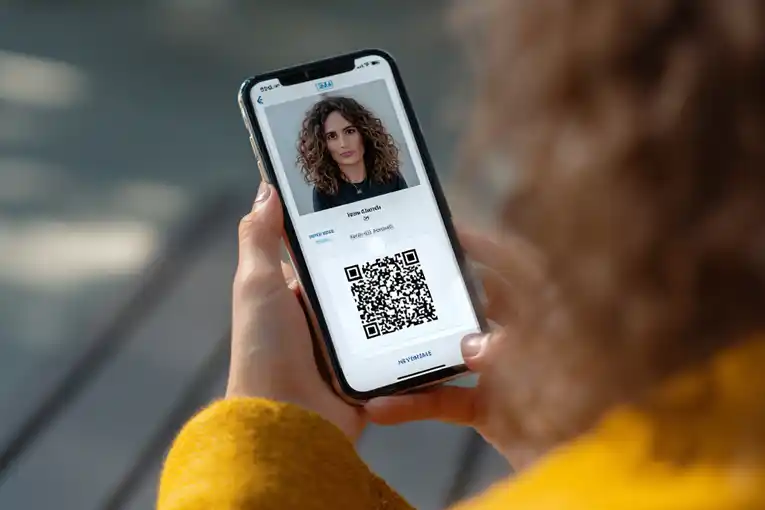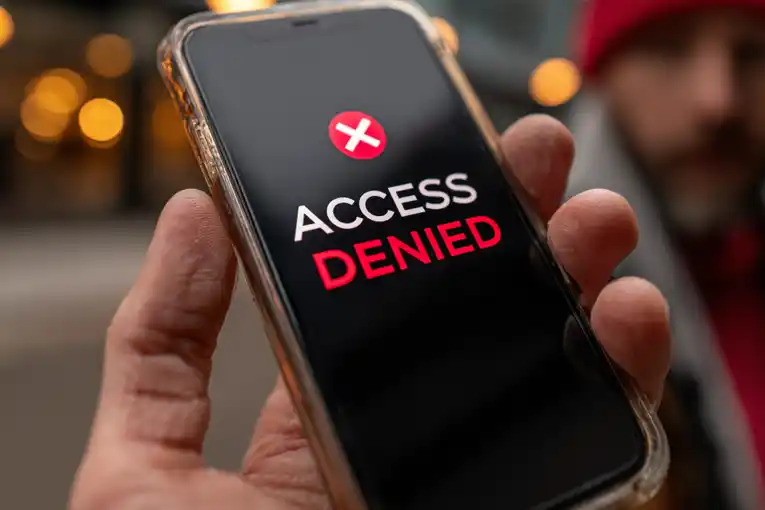Cyber Security News Aggregator
.Cyber Tzar
provide acyber security risk management
platform; including automated penetration tests and risk assesments culminating in a "cyber risk score" out of 1,000, just like a credit score.BritCard – Pros and Cons of the UK Digital ID
published on 2025-09-27 07:00:33 UTC by Simon BurgeContent:
The BritCard is the UK’s newly announced mandatory digital ID, unveiled by Prime Minister Keir Starmer on 26 September 2025.
It will be required by all British residents by the end of the current Parliament in 2029 and will function as a digital identity stored on smartphones, primarily to prove eligibility to work and access public services.
This announcement has sparked one of the most divisive debates in recent political memory.
Supporters argue it will help combat illegal immigration, reduce fraud, and modernise access to services.
Opponents, however, see it as an unnecessary intrusion into private life, a dangerous expansion of government power, and a step towards a surveillance society.
What is a Digital Identity?

A digital identity is an electronic record that proves who you are.
Instead of producing a passport, driving licence or bank statement, a digital identity lets you confirm your identity online or in person using a secure, government recognised system.
Digital identity systems can store attributes such as your name, date of birth, driving licence number, and even your qualifications.
They can then be used to prove eligibility, confirm age, or log into official services without showing physical documents every time.
Many countries already use some form of digital ID.
Estonia for example, is often cited as the gold standard, where digital IDs are used for voting, healthcare, banking and even signing contracts.
The UK, however, has historically resisted introducing a compulsory identity card, which makes the BritCard debate particularly controversial.
What is the Digital Identity Trust Framework?
The BritCard will operate within the Digital Identity and Attributes Trust Framework, overseen by the Office for Digital Identities and Attributes (OfDIA).
This framework sets the standards for how digital identities are created, verified, and used across both public and private sectors.
The framework is meant to ensure security, privacy, and interoperability between different systems.
For example, a BritCard could be used not only for government services but also for banking, online purchases, and travel; all under a common set of rules.
Critics, however, say this concentration of personal data into a single system creates a single point of failure, making it attractive to hackers or open to misuse by the state.
Why Does the UK Government Want to Introduce BritCard?

The government’s stated aim is to clamp down on illegal working in the UK.
By requiring every adult to hold a BritCard, employers would be able to verify instantly whether someone has the right to work.
Ministers claim this could recover up to £500 million a year from the £8 billion black economy linked to undocumented labour.
However, opponents argue this justification is flimsy.
Most illegal migrants work in cash-only environments where no documentation is required, meaning a digital ID will do little to disrupt people smugglers or informal labour markets.
In the days following the announcement, the government appeared to broaden its justification, suggesting BritCard could also be used to streamline access to healthcare, welfare, and other services.
This so-called “mission creep” has raised alarm bells, with fears that the card could become an all-purpose tool for surveillance and control.
The political optics are also difficult.
The policy has backing from the think tank Labour Together and echoes proposals made by Tony Blair two decades ago, which were defeated after fierce public resistance.
Today, opposition comes not just from traditional critics on the right but also from voices on the left, including Labour figures like Jeremy Corbyn and commentators such as Owen Jones.
Remarkably, the issue has united figures as politically diverse as Nigel Farage and Corbyn in their condemnation of the plan.
Public Response to UK Digital ID
The public backlash has been swift and severe.
A petition on the official UK Parliament website titled “Do not introduce Digital ID cards” had only a modest number of signatures before Starmer’s announcement.
Within days, it had surged past 2.5 million signatories, automatically triggering a parliamentary debate.
Protests have taken place outside the Labour Party Conference in Liverpool, where large crowds voiced their anger not only at the BritCard proposal but also at Starmer’s leadership more broadly.
Inside the party, divisions are growing.
Polls show more than half of Labour members want Starmer to resign, with Manchester Mayor Andy Burnham emerging as a potential challenger to replace him.
The sense of betrayal is a recurring theme among critics.
Because a mandatory digital ID was not included in Labour’s election manifesto, many voters feel the government has no democratic mandate to impose such a significant change on personal freedoms.
Arguments in Favour of a UK Digital ID

Proponents argue that BritCard could bring significant benefits across society. Here are the main points in favour:
Combat Illegal Working
The government’s headline argument is that BritCard will make it harder for undocumented migrants to find employment.
While this resonates with some voters, experts argue the impact will be limited given the prevalence of black-market jobs that operate outside formal checks.
Security and Scalability
Supporters say a digital ID will modernise how Britain manages identity, aligning the UK with countries like Estonia and India.
A unified system could reduce duplication, streamline bureaucracy, and enhance trust in online transactions.
Convenience
Instead of juggling multiple forms of ID, citizens could use a single, secure digital identity across a wide range of services.
This reduces bureaucracy and saves time.
Age Verification
A BritCard could make it easier to prove age in shops, online gaming, or social media.
Instead of handing over a passport, a simple digital confirmation could suffice, protecting privacy while ensuring compliance.
Reduce Fraud
Fraudulent benefit claims, identity theft and money laundering are persistent problems.
A verified digital identity could cut down on these crimes by making impersonation far harder.
Access to Public Services
From healthcare to education, having a secure digital ID could streamline access to government services.
It could also help the millions of people who struggle with lost or outdated documents.
Combat Illegal Immigration
A digital ID could help employers and landlords verify immigration status more accurately, preventing illegal working and exploitation while ensuring fairness in the job and housing markets.
Arguments Against a UK Digital ID

While the benefits are compelling, opponents raise equally serious concerns.
Civil liberties groups such as Big Brother Watch, campaigners and members of the public warn that BritCard could open the door to unintended consequences.
Government Overreach
Critics fear that once introduced, a digital ID system could expand beyond its original scope.
What starts as voluntary could, in time, become compulsory – a classic bait and switch tactic.
Privacy and Security Concerns
Even with safeguards, storing sensitive identity data creates risks.
Who controls this information? Who gets access? And can citizens truly guarantee their personal details won’t be misused?
Target for Hackers and Foreign Adversaries
A centralised or widespread ID system becomes a prime target for cyberattacks.
If breached, the cybersecurity fallout could affect millions of citizens at once.
“Papers Please” Society
Civil liberties advocates argue that a digital ID risks turning everyday interactions into ID checks.
Critics fear a society where proving your identity becomes routine, eroding freedoms.
Restrictions on Freedoms
Opponents warn that tying essential services to digital ID could exclude those who refuse to participate or lack access to technology, effectively creating a “digital prison” for the digitally excluded.
Social Credit System
One of the biggest fears is “scope creep”, that once established, a UK digital ID could evolve into a broader surveillance tool, similar to China’s controversial social credit system.
Although the UK government has ruled this out, strong scepticism remains.
Will the BritCard UK Digital ID Be Mandatory?
At present, the UK government insists that any digital identity system will be voluntary, not compulsory.
Citizens will still be able to use traditional documents like passports and driving licences if they prefer.
The focus is on choice and convenience rather than enforcement.
However, opponents remain cautious, arguing that voluntary schemes often become de facto mandatory over time, as businesses and public services increasingly demand them.
The future of BritCard will depend heavily on public trust.
If people believe their privacy is protected and the benefits are clear, uptake may grow naturally.
But without strong safeguards, resistance is likely to remain.
Key Takeaways
The BritCard debate touches on one of the most sensitive questions in modern society: how do we balance security and convenience with privacy and freedom?
Digital identity could transform how citizens access services, reduce fraud, and make life simpler in countless ways.
Yet it also raises profound concerns about surveillance, government overreach, and the erosion of personal freedoms.
For now, BritCard remains a proposal rather than a reality.
Its success will depend not just on technology, but on public trust, transparent governance, and clear legal protections.
The UK may not yet have a mandatory digital ID system, but the conversation is well under way, and it is one that affects every British citizen.
https://securityjournaluk.com/britcard-uk-digital-id/
Published: 2025 09 27 07:00:33
Received: 2025 09 29 13:27:36
Feed: Security Journal UK
Source: Security Journal UK
Category: Security
Topic: Security
Views: 1
